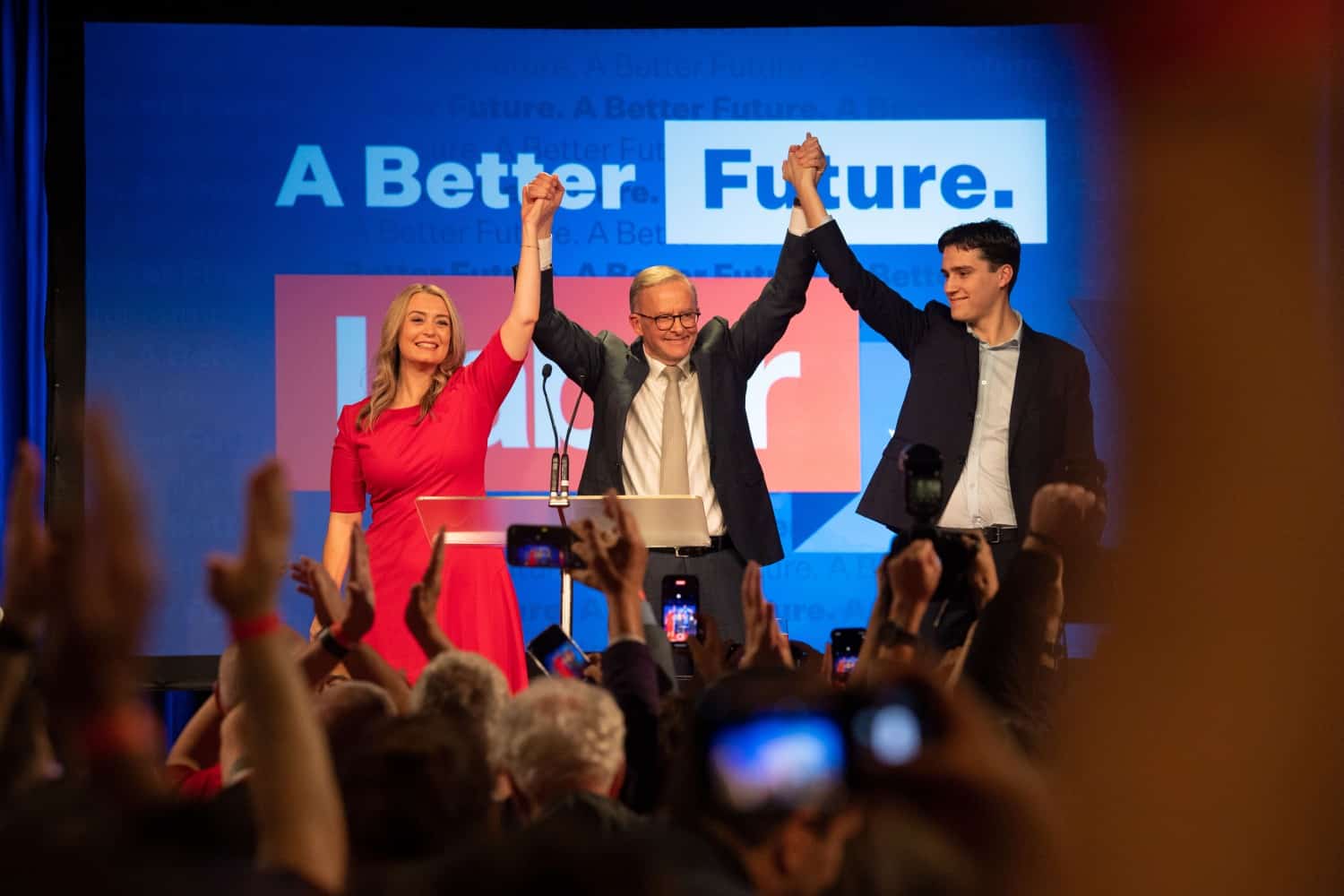Australia’s Prime Minister Scott Morrison conceded election defeat Saturday, hours after voters issued a stinging rebuke of his party’s inaction on climate change.
Morrison acknowledged a “difficult” and “humbling” day for his Liberal party, which has governed Australia for the last decade.
“Tonight I have spoken to the leader of the opposition and the incoming prime minister, Anthony Albanese, and I have congratulated him on his election victory,” he told supporters in Sydney.
With almost half the votes counted, Albanese’s center-left Labor was assured of forming the largest party in parliament, but had yet to secure an outright majority.
The balance of power could yet rest with a string of climate-focused independent candidates who routed Morrison’s Liberals in a string of once-safe conservative urban seats.
The so-called “teals” — mostly highly qualified women — ran on pro-environment, anti-corruption and pro-gender equality tickets.
Their success came after three years marked by a pandemic and climate-worsened bushfires, drought and floods that upended life for millions of Australians.
“People are saying the climate crisis is something they want action on,” said an elated Australian Greens leader Adam Bandt.
“We have just had three years of drought, and then fires and now floods and then floods again. And people can see it, that this is happening and it’s unfolding.”
‘Fair dinkum’ –
Albanese has vowed to end Australia’s “climate wars”, adopt more ambitious emissions targets and introduce a federal corruption watchdog — all key demands of the teals.
But he has refused calls to phase out coal use, or to block the opening of new coal mines.
He may now have to cut deals with independents demanding deeper commitments that would risk the ire of the pro-coal and mining union factions of his party.
Earlier Saturday, Albanese asked voters to give his center-left party a “crack” at running the country, and urged people to spurn a “divisive” prime minister.
Australians “want someone who is fair dinkum, someone who will ‘fess up if they make a mistake,” said the Labor leader.
Speaking in Adelaide during a four-state election-eve blitz, Albanese welled up as he reflected on his personal journey — from the son of a single mum living in Sydney public housing to the threshold of the highest office in the land.
“It says a lot about this country,” he said Friday, voice cracking with emotion. “That someone from those beginnings… can stand before you today, hoping to be elected prime minister of this country tomorrow.”
Albanese often notes he would be the first Australian with a non-Anglo or Celtic surname to be prime minister.
Voting is compulsory, enforced with a Aus$20 (US$14) fine but also rewarded at many booths that fired up barbecues to offer people a “democracy sausage”.
The election decides who controls the House of Representatives, the Senate and who lives in the prime minister’s “Lodge”.
More than seven million people cast early or postal ballots, according to the Australian Electoral Commission.

